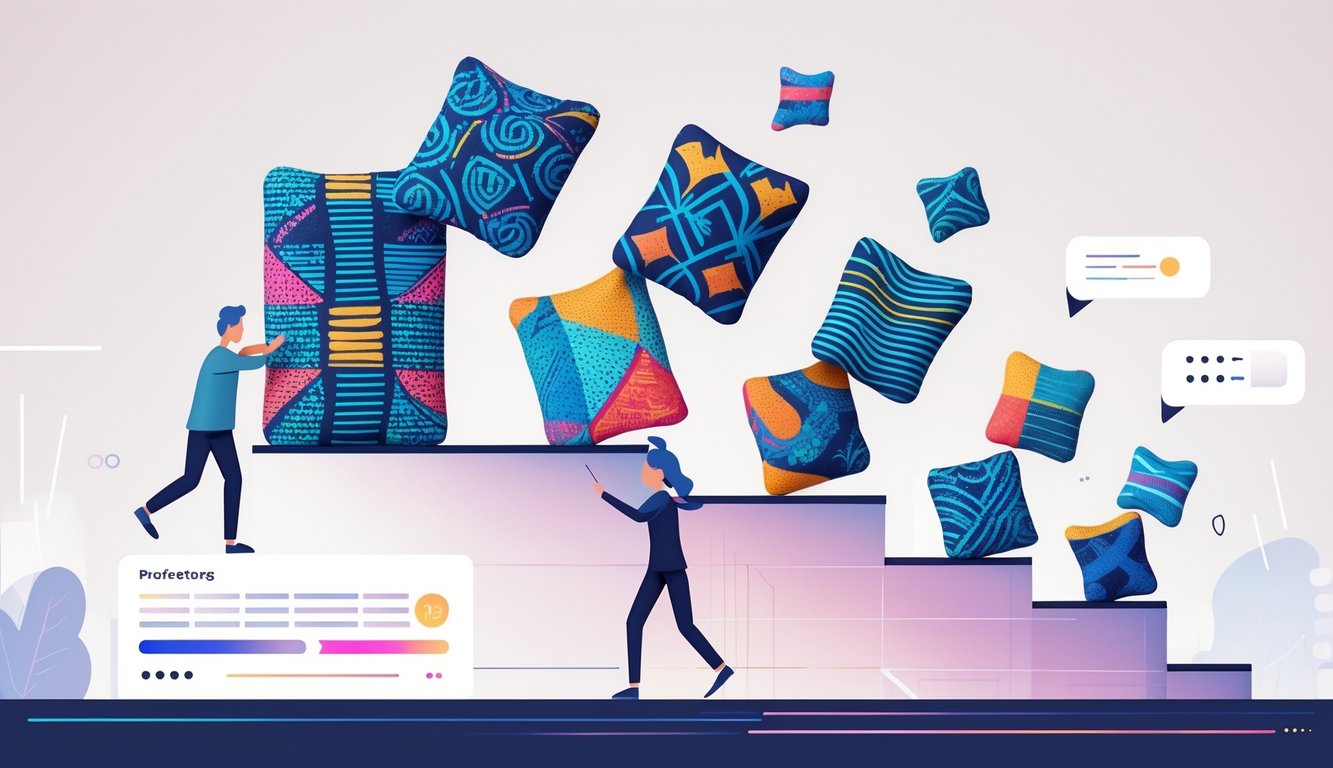
The Impact of Sleep Deprivation on Performance
So, after a trash night, everything goes sideways. Nobody tells you your focus disappears before your patience. I notice every time. Productivity? Down the drain. Alertness? Gone. I start missing obvious stuff—doesn’t matter if I’ve got two double espressos and noise-canceling headphones. Sometimes I wonder if coffee just makes me more aware of how tired I am.
Alertness and Daytime Function
Woke up at 3 a.m. for no reason—now I’m stumbling through the day, can’t remember which meetings are real and which I dreamed. Doctors say after 24 hours awake, your reaction time matches being legally drunk (CDC, meta-analyses, all that). That’s comforting.
Power naps? Never really work for me. Athletes? They get wrecked by even a little sleep loss—miss goals, drop balls, their stats nosedive. It’s not just me whining, Frontiers in Physiology has the receipts. My brain latches onto the wrong thing, like rereading the same email thread ten times and still missing the obvious change.
Jotted “be vigilant” on a sticky note, then lost the note for a week. Coffee just drags out the inevitable—eventually, only real sleep fixes anything. Gadgets, blue light glasses, essential oils? Nope. Not fooling anyone.
Sleep Duration and Productivity
Everyone says “eight hours.” Sure. Who actually gets that? The one startup guy I know brags about his four-hour sleep cycles and looks like a zombie. When I dip under 6.5 hours (thanks, Apple Health), my to-do list basically mocks me. Projects crawl, editing turns into a slog, and double-checking my work somehow makes it worse. Athletes are the same—one meta-analysis with 1,900 people showed performance tanks after even a single night of bad sleep. Aerobic, psychomotor, all of it.
Someone at my coworking space swears extra sleep is the secret to avoiding burnout. Maybe? For me, a few nights of short sleep and I can’t multitask or remember anyone’s name. Not dramatic, just obvious. Sleep duration = better accuracy and ideas.
Tried all the hacks—cold rooms, blackout curtains, magnesium gummies. Some help, but if I lose that core sleep window, nothing really patches it. I keep telling myself I’ll catch up on the weekend, but honestly, I never wake up more productive. Now there are “rest-enhancing” pajamas? Unless they come with more hours, I’m not buying it.
Influences on Shifting Sleep Preferences
Right now, I’m double-fisting coffee mugs—one says “latte O’Clock,” the other “Too Late Again”—because even after reading a billion sleep tips, tiny choices with caffeine, alcohol, or naps just mess everything up. Split sleep? I keep trying, but my phone alarm ends up under the couch, so good luck with that.
Caffeine and Alcohol
Caffeine after 3 p.m.? Might as well sign up for an all-nighter. Brain turns into a squirrel on a sugar rush. Science says caffeine’s half-life is five hours, but that 5 p.m. cold brew? I’m not falling asleep before midnight, no matter how many “sleep teas” I choke down. Even my aunt’s decaf after dinner guarantees I’ll be doom-scrolling. Johns Hopkins says caffeine messes with REM sleep more than we admit. I believe it.
Alcohol? Not a sleep aid, sorry. Wine at night just means I wake up at 3 a.m. dehydrated and confused. Studies on PubMed say it breaks up your sleep cycles. I ditched the nightcap ages ago. My neighbor mixes “sleep cocktails” (not FDA-approved, definitely not tasty), and now even my sleep app warns me about “fragmentation.” It’s always the same: buzzed, then restless, then typing nonsense at sunrise, promising never again.
Role of Napping and Split Sleep
Nobody’s convinced me that a nap replaces a full night’s sleep, even though every productivity “guru” loves those polyphasic schedules. I tried the 2:30 p.m. nap—result: weird spreadsheet dreams and waking up groggy. Split sleep is trending now—work late, nap early, patch it together. But a 2024 Sleep study says most split-sleepers just end up sleepier and more disjointed, especially if their roommates or pets don’t cooperate.
Supposedly, 20-minute naps are magic (National Sleep Foundation says so), but I always wake up in a panic, convinced I missed something important. Night-shift workers say naps are their only hope, but my brain refuses to believe broken sleep is good sleep. Even in Finland (where they’re obsessed with sleep hygiene), shift workers told researchers that naps just left them foggy and reaching for more coffee. So yeah, I’m still jealous of anyone who gets eight uninterrupted hours. If that’s you, congrats.
Everyday Relevance: Shift Work and Beyond
Honestly, I can’t decide if I hate 3 a.m. breakfast or forgetting if I even slept last night more. Switching between early shifts and late-night scrolling turns sleep into a weird, unpredictable mess. And, weirdly, even my wardrobe changes depending on how much I’ve slept.
Shift Work’s Effect on Sleep Patterns
Sometimes I think my microwave clock is gaslighting me—blink and it’s suddenly four hours later. Shift work? Guaranteed to destroy your sleep schedule. Try napping at noon. It’s a joke. The POST parliamentary report says working weird hours trashes your circadian rhythm and loads you up with health risks—irritability, random desk naps, even high blood pressure.
Blackout mask? Doesn’t fix it. Even sleep experts admit there’s no easy way to adapt shift schedules. A recent PubMed review says fatigue and brain fog don’t go away unless companies overhaul how work is scheduled. All those “quick fixes”—blue light glasses, magnesium, decaf after dinner—I’ve tried them, but my Fitbit still thinks I live in an airport lounge.
Societal Changes in Sleep Preferences
If Grandma says she never napped, I’m calling her out. Couch naps are back, but now we schedule them like Zoom meetings. Sleep habits have changed, especially with remote work turning “bedtime” into just a suggestion. Apparently, over 40% of adults changed their sleep preferences last year (Sleep Foundation poll, 2023), millennials way more than boomers.
Those matching pajama sets and “sleeper patterns” started as Instagram jokes, but now I wear them during half my Zoom calls. A columnist in Sleep Medicine (July 2024) said, “Sleep fashion now reflects real behavioral shifts.” But if work stress messes up our circadian rhythm, does buying cute pajamas count as coping, or is it just a collective fashion crisis? I’m not sure. Maybe both.



